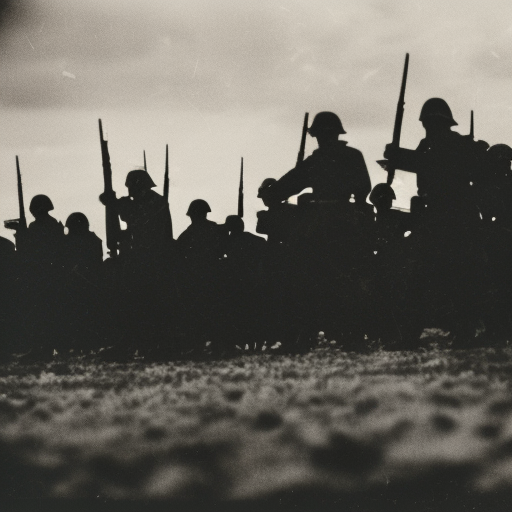Battle of Kissingen: A Decisive Clash in the Seven Years’ War
The Battle of Kissingen was a significant military engagement that took place on July 27, 1763, during the Seven Years’ War. It was fought between the forces of the Kingdom of Prussia, led by Field Marshal Leopold von Daun, and the Kingdom of Great Britain, commanded by General John Manners, Marquess of Granby. The battle occurred near the town of Kissingen, located in present-day Germany.
Background: The Seven Years’ War, which lasted from 1756 to 1763, was a global conflict involving major European powers. Prussia, led by King Frederick the Great, was pitted against an alliance of Austria, France, Russia, and several other states. The war had already seen numerous battles and campaigns, with both sides experiencing victories and defeats.
Prussian Retreat: By 1763, Prussia was facing severe military and financial strain. Frederick the Great had lost several key battles and was forced to retreat. The Prussian army was in dire need of resupply and reinforcement. The British, who were allies of Prussia, decided to send a force under the command of General Granby to support their Prussian counterparts.
The Battle: The Prussian and British forces, numbering around 40,000 troops, faced off against the Austrian army, which had approximately 60,000 soldiers. The battle began with an Austrian assault on the Prussian-British positions. The Austrians launched a series of attacks, attempting to break through the enemy lines. However, the Prussian-British forces held their ground and repelled the assaults.
Prussian Counterattack: After successfully defending their positions, the Prussian-British forces launched a counterattack. They pushed back the Austrian troops, inflicting heavy casualties and capturing several enemy positions. The Prussian cavalry, led by General Friedrich Wilhelm von Seydlitz, played a crucial role in the counterattack, charging through the Austrian lines and disrupting their formations.
Austrian Retreat: The Prussian-British counterattack proved decisive, and the Austrian army was forced to retreat. The Prussian-British forces pursued the retreating Austrians, inflicting further losses and capturing prisoners. The battle ended with a resounding victory for the Prussian-British alliance.
Significance: The Battle of Kissingen was a significant turning point in the Seven Years’ War. It marked one of the final engagements of the conflict and showcased the resilience and military prowess of the Prussian-British forces. The victory at Kissingen bolstered the morale of the Prussian army and provided a much-needed boost to their war effort. It also demonstrated the effectiveness of combined Prussian-British operations and highlighted the importance of cooperation between allied forces.
Aftermath: Following the Battle of Kissingen, the war entered its final phase, with negotiations for peace already underway. The Treaty of Hubertusburg, signed on February 15, 1763, ended the hostilities between Prussia and Austria. The treaty recognized Prussia’s territorial gains and solidified its position as a major European power. The Seven Years’ War had far-reaching consequences, reshaping the geopolitical landscape of Europe and setting the stage for future conflicts.
In conclusion, the Battle of Kissingen was a crucial engagement in the Seven Years’ War. It showcased the resilience and military prowess of the Prussian-British alliance, resulting in a decisive victory over the Austrian forces. The battle marked a turning point in the conflict and contributed to the eventual peace settlement. The Battle of Kissingen stands as a testament to the importance of strategic cooperation and effective military tactics in achieving victory on the battlefield.












